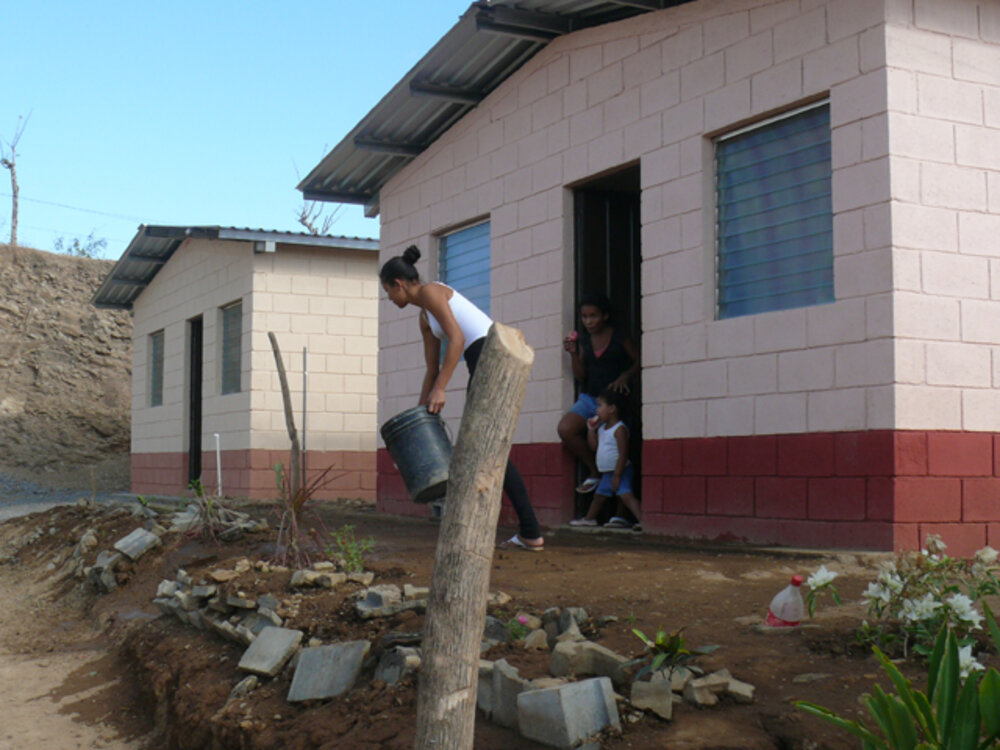Mexico has been a non-regional CABEI member since 1992 with an authorized stake of USD306.25 million in the Bank's share capital and capital contributions of USD76.56 million, ranking as the third largest shareholder within the group of non-regional members with 5.03%.
The contribution that Mexico channels to the Central American region through CABEI is based on various financial cooperation instruments with Banco Nacional de Comercio Exterior S.N.C. (Bancomext) for a total amount of USD520.8 million. The relationship between the Bank and this country was solidified in 2008 with the launching of the Central American Social Housing Development Program. It falls under the framework of the Mesoamerican Integration and Development Project (formerly Plan Puebla Panamá). Since that date, the Mexican government has made resources available to develop a sustainable market for long-term housing finance in the Central American region that addresses the housing deficit and future needs in this area. Throughout the Program's existence, 59 disbursements have been made through 14 intermediary institutions. In total, 192.7% of the initial financing available has been channeled, benefiting a total of 8,032 low- income households, which can now enjoy a more dignified home.
New instrument to improve the sectors of human development and social infrastructure

With this programmatic approach, CABEI promotes a management model that supports investment in social infrastructure.
Tegucigalpa, June 5, 2018.- The Central American Bank for Economic Integration (CABEI) approved the Sectoral Intervention Framework for Human Development and Social Infrastructure, which establishes the guidelines and technical criteria that will guide the attention of programs and projects framed in that focus area with the purpose of promoting the sustainable wellbeing of the inhabitants of the Central American region.
The Sectoral Intervention Framework (SIF) through which CABEI's vision is established to serve the sectors of the Human Development and Social Infrastructure focus area (HDSI), also considers the guidelines of the related regional strategies and agendas. Likewise, the document seeks to align with the approach proposed in the 2015-2019 CABEI Institutional Strategy.
In this context, the Sectoral Intervention Framework for Human Development and Social Infrastructure will serve as an instrument that helps CABEI to: "be a relevant strategic partner for CABEI's partner countries to enhance the human development and sustainable well-being of its citizens through of the provision of financial resources that promote social inclusion, resilience, poverty reduction, and the strengthening of human capital, seeking to guarantee the sustainable development of the region," said CABEI Executive Vice President, Alejandro Rodríguez Zamora.
This sectoral strategic management instrument will support countries in meeting strategic objectives, specifically in terms of social and economic development, through interventions in health, education, water, sanitation and housing and their environment, as well as interventions related to culture, arts and sports.
To this end, the promotion of five strategic activities is considered:
• Strengthen or create regional programs under attractive conditions in order to promote interventions of high social and environmental impact.
• Develop and implement high-impact national initiatives and promote their development in all countries of the region, promoting good practices in the implementation of social programs and projects.
• Foster strategic partnerships with prestigious technical agencies that support the creation and implementation of programs and projects with a high economic and social impact.
• Strengthen the technical capacities for the implementation of projects by the executing agencies.
• Support participatory planning processes in order to make a more efficient use of resources in the territories.
"CABEI is aware that in order to move towards a prosperous and inclusive region, sustainable economic growth is necessary, and for that the countries need to have a sustainable, efficient and quality strategic social infrastructure," concluded Executive Vice President, Alejandro Rodríguez.




